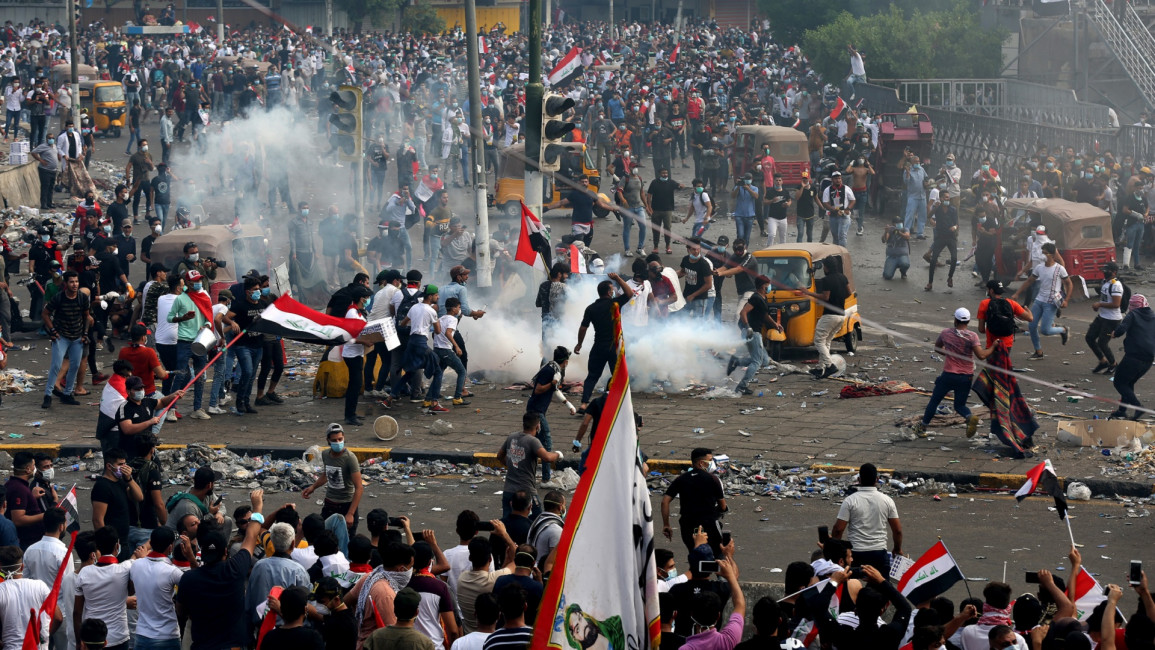Iraq imposes curfew on Baghdad, as more protesters are killed
The Iraqi High Commission for Human Rights (IHCHR) said that five protesters were killed in the Iraqi capital on Monday as students and schoolchildren defiantly took to the streets to protest against government corruption, poor public services, and unemployment.
Ali Bayati of the IHCHR told AFP that it was unclear how the five protesters had died, but many in Baghdad in recent days have sustained severe trauma wounds from being hit by tear gas canisters fired by security forces.
Read more: Why are people protesting in Iraq
Earlier on Monday, security forces fired tear gas at student protesters and beat them with batons following a warning to students from Iraqi's minister of education to "stay away" from protests.
The death toll from four days of protest now stands at 79. Nearly 4,000 people have also been injured since Friday, according to the IHCHR.
Unprecedented Reforms
The latest violence came as the Iraqi parliament announced a series of unprecedented reforms in what appears to be an attempt to appease protesters.
The measures include cancellation of financial bonuses for top officials including MPs, ministers, the prime minister, and the president, the dissolution of governorate councils pending elections, and the creation of a parliamentary committee to amend the constitution.
The Speaker of the Iraqi parliament, Salim al-Jabouri, called on the Iraqi government to "protect the lives of protesters and public and private property".
However, the parliament did not mention the latest killings. An Iraqi activist told The New Arab that he supported the decisions to dissolve governorate councils and ease amendments to the constitutions but added that "the parliament’s ignoring of the murder and detention [of protesters] shows that it is clearly complicit with the government".
He said that the protests would continue until the parliament's decisions had been implemented.
A member of the Iraqi parliament's legal committee told The New Arab that the proposed reforms would save the Iraqi state 180 million dollars annually.
In another unprecedented move, the Iraqi Federal Supreme Court ruled that the distribution of public offices and ranks according to religious sect was unconstitutional.
Protesters across the country had demanded an end to sectarianism in politics, calling on public offices to be distributed solely on the basis of merit.
However, the Supreme Court's decision does not include Iraq’s top three leadership positions. Since the early 2000s, the president of Iraq has always been a Kurd, the prime minister a Shia Arab, and the speaker of parliament a Sunni Arab.



